Conflict and Health: Exploring Health Challenges in Current Conflicts
Date: June – August 2024
Location: Online, via Zoom
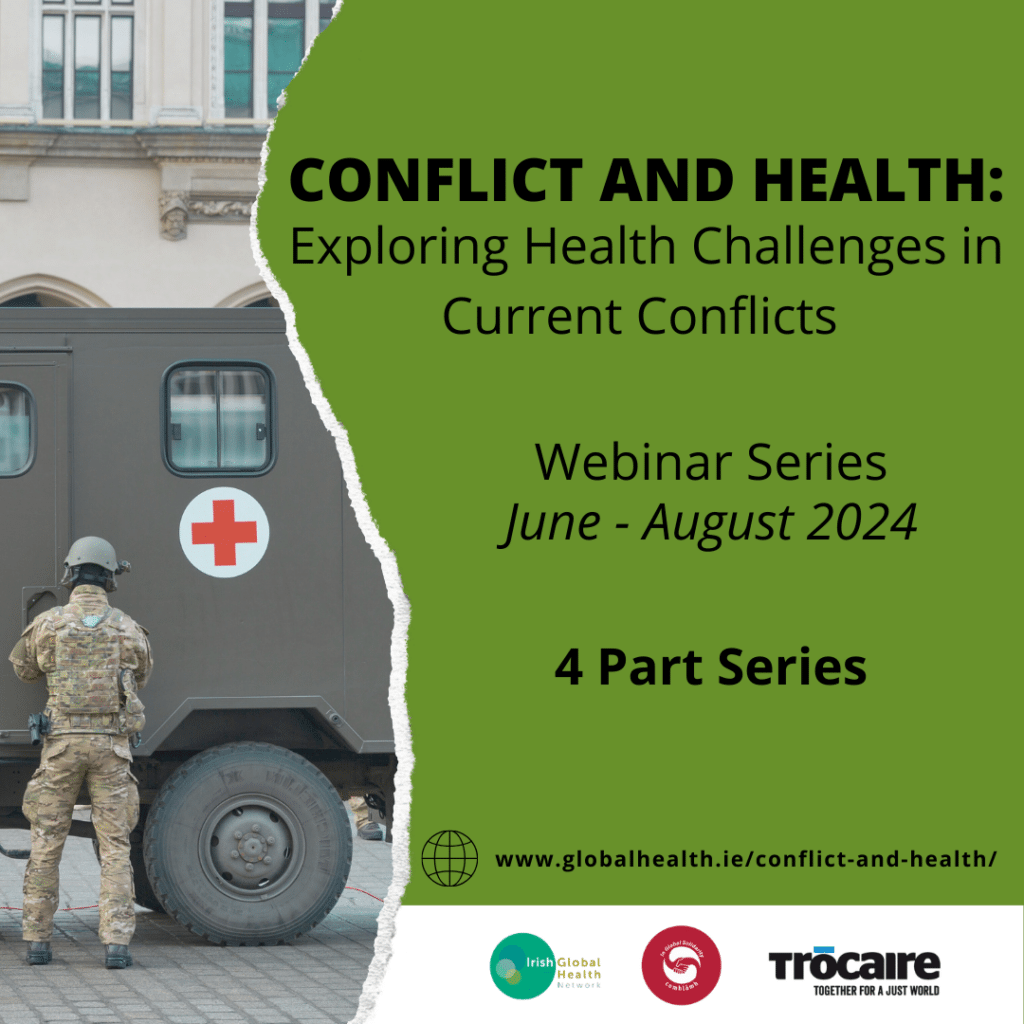
REGISTER HERE
Webinar Topics:
Join the Irish Global Health Network for a compelling exploration of the intricate relationship between conflict and health in our 4-part webinar series. Delving into the heart of ongoing conflicts, we aim to shed light on the multifaceted repercussions on both physical and psychological wellbeing, examining crucial aspects such as access to healthcare, food security, maternal health, trauma and mental health, and more.
This series is tailored for a diverse audience, including global health professionals, development practitioners, humanitarian workers, policymakers, volunteers, students, and anyone interested in the intersection of global health, development, and humanitarian efforts.
The series follows on from two successful webinars in 2022 and 2023 that were held in response to the evolving conflicts in Ukraine and Sudan. These webinars featured prominent speakers from organisations working both in Ireland and on the ground on humanitarian response efforts including GOAL, MSF, Amnesty International, and IOM. Both of these webinars were well attended and reported by attendees to be useful and informative.
Our webinars aim to provide comprehensive insights into the impact of conflict on health, offering specific examples from current conflicts worldwide. Through expert analysis and firsthand accounts, we seek to foster a deeper understanding of the challenges faced and potential avenues for intervention.
In partnership with Comhlámh and Trócaire.
Format
Each webinar will feature a distinguished panel of expert speakers, offering diverse perspectives and insights into the intricate dynamics of conflict and health. Participants can engage in interactive discussions, Q&A sessions, and gain valuable knowledge from those on the frontlines of global health and humanitarian efforts.
Dates & Duration
Mark your calendars for our 4-part series, commencing on June 26th and concluding on August 7th, 2024. Each webinar will be held for one hour, providing a concise yet comprehensive exploration of the featured conflict and its health implications.
Join Us
Don’t miss this unique opportunity to deepen your understanding of the nexus between conflict and health. Register now to secure your spot in this vital conversation for global wellbeing.
Episode 1 – Palestine
Wednesday 26th June, 17:00 Irish Time
WATCH THE RECORDING EVALUATION FORM
Speakers
Professor Nick Maynard, Consultant Upper GI Surgeon at Oxford University Hospitals NHS Foundation Trust and Regular visitor to Gaza with Medical Aid for Palestinians (MAP)
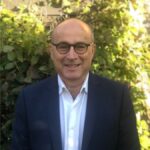 Professor Nick Maynard is a Gastrointestinal Surgeon at Oxford University Hospital, Nick Maynard has travelled for work to Gaza many times between 2010 and 2024. Since 2010 he has been to Gaza almost every year, usually leading a group of medics who teach students and junior doctors.
Professor Nick Maynard is a Gastrointestinal Surgeon at Oxford University Hospital, Nick Maynard has travelled for work to Gaza many times between 2010 and 2024. Since 2010 he has been to Gaza almost every year, usually leading a group of medics who teach students and junior doctors.
Marie- Aure Perreaut, Emergency Coordinator, Médecins Sans Frontières/Doctors Without Borders
 Marie-Aure Perreaut is a recently returned Emergency Coordinator with Médecins Sans Frontières/Doctors Without Borders in Gaza.
Marie-Aure Perreaut is a recently returned Emergency Coordinator with Médecins Sans Frontières/Doctors Without Borders in Gaza.
MSF is providing vital medical and surgical support during the ongoing war and all-out assault on Gaza which has killed over 35,000 people and injured more than 79,000 people. The assault on Rafah has yet again forcibly displaced hundreds of thousands of people who had fled to Rafah to seek protection. Hospitals have been attacked besieged by Israeli forces while patients and staff have been forced to evacuate as fighting gets closer. The remaining hospitals and health facilities that are partially functional and newly set up field hospitals are overwhelmed by mass casualty events. Humanitarian aid is blocked at crossing points as water, shelter, food and medical supplies become even scarcer. An immediate and sustained ceasefire and the restoration of the full flow of humanitarian and medical aid is the only way to begin to respond to the overwhelming needs in Gaza.
Marie-Aure first worked as an emergency coordinator in Gaza in November 2023 as MSF teams were just allowed back into Gaza. She returned to Gaza in February – March 2024, witnessing how the situation deteriorated further as all humanitarian actors continue to struggle to provide humanitarian relief amid the immense challenges. Marie-Aure worked at Al Aqsa hospital in Gaza’s middle area and in Rafah.
Walaa Al Abssi, MPH Candidate, University College Dublin
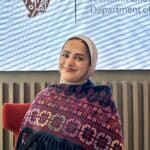 Walaa AlAbssi, a public health candidate, currently pursuing Masters of Public Health at University College Dublin. Originally, from Palestine, Gaza, where she earned her Dentistry degree from Al-Azhar University in 2019 and worked for over 4 years at the ministry of health and the private sector.
Walaa AlAbssi, a public health candidate, currently pursuing Masters of Public Health at University College Dublin. Originally, from Palestine, Gaza, where she earned her Dentistry degree from Al-Azhar University in 2019 and worked for over 4 years at the ministry of health and the private sector.
Walaa’s academic journey reflects her dedication to healthcare and community service. Alongside her studies, she has worked as a Teaching Assistant at the faculty of dentistry for two years, a Coordinator of scientific conferences and workshops, and a volunteer for medical NGOs where she has positively impacted the lives of students and professionals alike.
She has been working to raise awareness of the ongoing violence in Palestine, and to raise funds to evacuate her family who are currently in Rafah.
Hear Walaa’s story here.
Moderators
Dr Caroline Murphy, CEO, Comhlámh
 Caroline is currently working as the CEO for Comhlámh. She has over 15 years’ experience of working for organisations across the Irish International Development sector with key experience in development education, research, policy, safeguarding and activism. Her PhD focussed on ‘Pedagogy of the Oppressed’ and ‘Theatre of the Oppressed’, exploring applied theatre as a method for addressing injustice and oppression. Caroline has a particular passion for arts and education practices that seek to deepen affective engagement and creativity for building global solidarity.
Caroline is currently working as the CEO for Comhlámh. She has over 15 years’ experience of working for organisations across the Irish International Development sector with key experience in development education, research, policy, safeguarding and activism. Her PhD focussed on ‘Pedagogy of the Oppressed’ and ‘Theatre of the Oppressed’, exploring applied theatre as a method for addressing injustice and oppression. Caroline has a particular passion for arts and education practices that seek to deepen affective engagement and creativity for building global solidarity.
Nadine Ferris France, Executive Director, Irish Global Health Network
 Nadine Ferris France is the Executive Director for the Irish Global Health Network and ESTHER Ireland. She is a communicator, writer, trainer and civil society activist with over 20 years’ experience in gender, HIV and global health. She has worked extensively with global, regional and national civil society networks on HIV and TB for many years as the co-founder and Executive Director of Health & Development Networks (HDN).
Nadine Ferris France is the Executive Director for the Irish Global Health Network and ESTHER Ireland. She is a communicator, writer, trainer and civil society activist with over 20 years’ experience in gender, HIV and global health. She has worked extensively with global, regional and national civil society networks on HIV and TB for many years as the co-founder and Executive Director of Health & Development Networks (HDN).
In addition to her experience within the NGO-field, she has also worked extensively with the World Health Organization and also lectures with various academic institutions. She is currently a member of the Programme Advisory Panel for the Robert Carr Civil Society Network Fund and the European AIDS Treatment Group. At this stage in her own professional development, she is particularly passionate about issues such as self-stigma affecting people living with HIV and survivors of gender-based violence. Nadine holds an MSc in Global Health from Trinity College Dublin.
Resources
- Save the Children report on missing children https://www.savethechildren.org.uk/news/media-centre/press-releases/over-20000-children-estimated-to-be-lost-in-gaza
- MSF report on Silent Killings https://www.msf.org/gazas-silent-killings-destruction-healthcare-system-rafah
- Oxfam’s call for a ceasefire https://www.oxfamireland.org/campaign/call-for-a-lasting-ceasefire
- Read, and learn more about Palestine and the Israeli Occupation and system of Apartheid Palestine https://padlet.com/Comhlamh_1/development-education-and-palestine-informing-ourselves-cv0dmv6jtg44rtp5
- Get fully informed on the Boycott, Divestment and Sanction Movement and support all their calls to action https://bdsmovement.net/
- Become an Apartheid Free Zone https://www.oireachtas.ie/en/bills/bill/2018/6/
- Learn more about the Occupied Territories and call on the Irish Government to implement this bill https://www.oireachtas.ie/en/bills/bill/2018/6/
- Demand our government to stop allowing warplanes bound for Israel to pass through Shannon Airport https://docs.google.com/forms/d/e/1FAIpQLSfxgqyA3rJ5_TvYU0S6JJHTPc–RQvVk67vJgl_JzLTBK9YCA/viewform
- Follow https://www.ipsc.ie/ and support their calls to action and national and regional demonstrations
- Become a Comhlámh member (https://comhlamh.org/become-member/) and join a movement for change and connect with our member groups, including Comhlámh Justice for Palestine https://comhlamh.org/member-groups/comhlamh-justice-for-palestine-group/
Episode 2 – Ukraine
Wednesday 10th July, 17:00 Irish Time
WATCH THE RECORDING EVALUATION FORM
Speakers
Iryna Mogilevkina, Professor of Obstetrics, Gynaecology and Perinatology, Bogomolets National Medical University, Kyiv
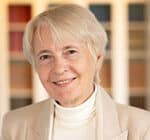 Iryna Mogilevkina received her training in obstetrics and gynaecology at the Donetsk State Medical University, Ukraine (graduated in 1981). She obtained her PhD (Candidate of Science) degree from the Scientific Research Institute of Paediatrics, Obstetrics and Gynaecology in Kyiv, in 1991. She defended her PhD thesis at Uppsala University in 2003. In 2004, she received her habilitation (Doctor of Science) from Shupik Medical Postgraduate
Iryna Mogilevkina received her training in obstetrics and gynaecology at the Donetsk State Medical University, Ukraine (graduated in 1981). She obtained her PhD (Candidate of Science) degree from the Scientific Research Institute of Paediatrics, Obstetrics and Gynaecology in Kyiv, in 1991. She defended her PhD thesis at Uppsala University in 2003. In 2004, she received her habilitation (Doctor of Science) from Shupik Medical Postgraduate
Academy, Kyiv and was appointed Professor at the Donetsk State Medical University, Ukraine and later at the Bogomolets National Medical University, Kyiv, Ukraine. Her extensive experience in maternal care, involvement in the development of national protocols as well as successful implementation of various national and inter national projects contributed to the enhancement of maternal and child care in Ukraine. She was awarded several scholarships, including Uppsala University Scholarships (1999, 2002, 2015, 2022).
Dr. Glenn Goss, Clinical Social Worker and Senior Mental Health and Psychosocial Support Technical Advisor, Americares
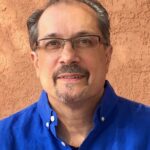 Dr. Glenn Goss is a Clinical Social Worker and the Senior Mental Health and Psychosocial Support Technical Advisor for Americares. His primary focus is to support the development and implementation of strategies to expand existing mental health programs in 15 countries and to build new global initiatives. Americares started working in Ukraine from the beginning of the war and have so far provided over $120 million to 80 local organizations including those involved in providing mental health interventions, staff care and training to those in need. Prior to Americares he worked with international organizations in 40 countries throughout Africa, Asia, Europe, North America and the Middle East. He is a Diplomate of the American Academy of Experts in Traumatic Stress and has a post-graduate certificate in Global Mental Health from the Harvard Refugee Trauma Program.
Dr. Glenn Goss is a Clinical Social Worker and the Senior Mental Health and Psychosocial Support Technical Advisor for Americares. His primary focus is to support the development and implementation of strategies to expand existing mental health programs in 15 countries and to build new global initiatives. Americares started working in Ukraine from the beginning of the war and have so far provided over $120 million to 80 local organizations including those involved in providing mental health interventions, staff care and training to those in need. Prior to Americares he worked with international organizations in 40 countries throughout Africa, Asia, Europe, North America and the Middle East. He is a Diplomate of the American Academy of Experts in Traumatic Stress and has a post-graduate certificate in Global Mental Health from the Harvard Refugee Trauma Program.
Prof Gerard Bury, Professor of General Practice, Director, UCD Centre for Emergency Medical Science, Associate Dean for Medical Education and founder of the Coombe Family Practice
 Gerard Bury has been Professor of General Practice in UCD since 1991 and during this time he developed the General Practice curriculum to expand the UCD GP Tutor network. Prof. Bury has been at the forefront of paramedic education in Ireland since the 1980s and he has been integral in the development of third-level education for the paramedic profession in Ireland.
Gerard Bury has been Professor of General Practice in UCD since 1991 and during this time he developed the General Practice curriculum to expand the UCD GP Tutor network. Prof. Bury has been at the forefront of paramedic education in Ireland since the 1980s and he has been integral in the development of third-level education for the paramedic profession in Ireland.
Gerry has worked as a GP in Dublin 8 for almost 40 years. He is passionate about patient and community care and in 1994 he established the UCD Coombe Family Practice. In 2021 the UCD Coombe Family Practice moved into their new premises in the HSE Rialto Primary Care Centre.
In 2001, Prof. Bury established the UCD Centre for Emergency Medical Science (CEMS) to provide a national centre of excellence for research, development, education and training in pre-hospital emergency care, and in doing so he cemented long-standing relationships between UCD and the HSE National Ambulance Service, Dublin Fire Brigade, Defence Forces, Dublin Airport Fire & Rescue Service, Civil Defence and a far-reaching network of General Practitioners across Ireland and further afield.
Under the auspices of UCD CEMS he also worked with colleagues to develop the MERIT (Medical Emergency Responders: Integration & Training) project in 2004. This is a highly successful collaboration between UCD CEMS, the National Ambulance Service, and General Practitioners nationwide who have been trained to provide excellent pre-hospital emergency care for out-of-hospital cardiac arrests. To date over 500 GP practices across Ireland participate in the MERIT Project.
In addition to his valued work in patient and community care in Ireland Gerry has also made a very positive impact in training medical professionals internationally. In 2011, Prof Bury led a team to provide Immediate Care training to doctors in Lahore, Pakistan and he ensured the ongoing sharing of this vital education locally via the provision of an Instructor course.
In April 2022 Gerry organised a donation by the UCD Centre for Emergency Medical Science of its ambulance, filled with clinical equipment, to Medical Help Ukraine, and he currently leads a project to train Ukrainian paramedics and medics to treat major haemorrhage in the context of injuries inflicted as a result of wartime activities. The medical training and equipment being provided is hugely appreciated and the demand for this training is increasing.
Moderator
Unarose Hogan, Deputy Senior Vice President Technical Unit, Americares and IGHN Board Member
 Unarose Hogan has spent the past eighteen years working in global health security, infection control, academia and clinical practice; primarily living in Sub Saharan Africa but also working in Central and South East Asia and Eastern Europe. . She held several former positions with WHO. She served as Infection Control Advisor for Medical Operations during the Ebola Response with United Nations Mission Emergency Ebola Response (UNMEER, Sierra Leone), PATH- CDC Global Health Security Partnership (Vietnam), GIZ (Malawi), New York University (Rwanda), Irish Aid and University of East Anglia (UK). She has published broadly in operational research in low-income countries.
Unarose Hogan has spent the past eighteen years working in global health security, infection control, academia and clinical practice; primarily living in Sub Saharan Africa but also working in Central and South East Asia and Eastern Europe. . She held several former positions with WHO. She served as Infection Control Advisor for Medical Operations during the Ebola Response with United Nations Mission Emergency Ebola Response (UNMEER, Sierra Leone), PATH- CDC Global Health Security Partnership (Vietnam), GIZ (Malawi), New York University (Rwanda), Irish Aid and University of East Anglia (UK). She has published broadly in operational research in low-income countries.
Resources
- Get informed and donate to UNFPA https://www.unfpa.org/ukraine#:~:text=The%20war%20in%20Ukraine%20continues,livelihoods%20and%20increasing%20poverty%20levels.
- Get informed at UN WOMEN https://www.unwomen.org/en/news-stories/in-focus/2024/02/women-and-girls-after-two-years-of-war-in-ukraine#:~:text=Women%2C%20children%2C%20and%20female%2D,%2C%20including%20gender%2Dbased%20violence.
- Get inform and donate to UNICEF https://www.unicef.org/emergencies/war-ukraine-pose-immediate-threat-children
- Get informed from Americares https://www.americares.org/emergency-program/war-in-ukraine/
- We’ve put together a list of reputable organisations working on the ground in Ukraine to support in any way that you can: https://globalhealth.ie/ukraine-how-you-can-help/
- For more information about Ukraine and how global health organisations are supporting the response, please take a look out our dedicated Crisis in Ukraine web page which includes dashboards, situation reports and other information about the refugee crisis: https://globalhealth.ie/crisisukraine/
Episode 3 – Democratic Republic of Congo
Wednesday 7th August, 17:00 Irish Time
WATCH THE RECORDING EVALUATION FORM
Speakers
Edouine Kirere, Project Manager, SOFEPADI
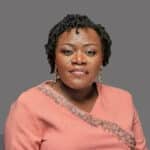 Edouine Kirere, an activist for the rights of women and girls in the DRC, graduated in Public International Law from Protestance University in Congo. She has worked with SOFEPADI since 2016 as a project manager; In Bunia, SOFEPADI has a one-stop Center called KARIBUNI WA MAMA gyneco-obsteric clinical medical center which takes care of survivors of Gender-Based Violence. She is also a member and engaged in GIMAC (Gender Is in My Agenda Campaing) YOUNG WOMAN NETWORK since 2020, she is an ALUMNI of YALI civic leadership, she was one of the members of the advisory group of the participatory research process on MHPSS and GBV for survivors of gender-based violence.
Edouine Kirere, an activist for the rights of women and girls in the DRC, graduated in Public International Law from Protestance University in Congo. She has worked with SOFEPADI since 2016 as a project manager; In Bunia, SOFEPADI has a one-stop Center called KARIBUNI WA MAMA gyneco-obsteric clinical medical center which takes care of survivors of Gender-Based Violence. She is also a member and engaged in GIMAC (Gender Is in My Agenda Campaing) YOUNG WOMAN NETWORK since 2020, she is an ALUMNI of YALI civic leadership, she was one of the members of the advisory group of the participatory research process on MHPSS and GBV for survivors of gender-based violence.
Isidro Carrion Martin, Epidemiology Advisor, Doctors Without Borders/ Médecins Sans Frontières (MSF)
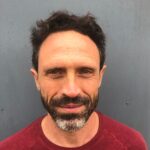 Isidro is a public health epidemiologist with a background in nursing. He has a Masters in International Cooperation and Economic Development and a Masters in Public Health. Isidro started working with Doctors Without Borders/ Médecins Sans Frontières (MSF) in 2009 and has been an epidemiology advisor with MSF since 2017. He has also worked and collaborated with WHO in outbreak response and surveillance activities.
Isidro is a public health epidemiologist with a background in nursing. He has a Masters in International Cooperation and Economic Development and a Masters in Public Health. Isidro started working with Doctors Without Borders/ Médecins Sans Frontières (MSF) in 2009 and has been an epidemiology advisor with MSF since 2017. He has also worked and collaborated with WHO in outbreak response and surveillance activities.
MSF has been running large-scale projects in the Democratic Republic of Congo (DRC) since 1997, responding to the devastating effects of violence and other health emergencies, such as disease outbreaks and malnutrition. Isidro has been working in or remotely supporting projects in DRC since 2011, both as a nurse as an epidemiologist.
Paolo Sordini, WASH Programme Manager, Concern
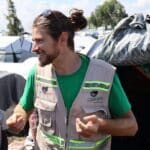 With a background in hydrogeology, Paolo has extensive experience in hydraulic engineering and WASH interventions for general contractors and NGOs, including MSF. He spent over 10 years working in North and South America, South East Asia, Western and Central Africa.
With a background in hydrogeology, Paolo has extensive experience in hydraulic engineering and WASH interventions for general contractors and NGOs, including MSF. He spent over 10 years working in North and South America, South East Asia, Western and Central Africa.
His journey with Concern started in 2020, covering the role of WASH Advisor in DRC for three years. Since the end of 2023, Paolo joined the Surge Team in Concern as WASH Programme Manager. He is currently deployed in DRC.
Moderator
Nadine Ferris France, Executive Director, Irish Global Health Network
 Nadine Ferris France is the Executive Director for the Irish Global Health Network and ESTHER Ireland. She is a communicator, writer, trainer and civil society activist with over 20 years’ experience in gender, HIV and global health. She has worked extensively with global, regional and national civil society networks on HIV and TB for many years as the co-founder and Executive Director of Health & Development Networks (HDN).
Nadine Ferris France is the Executive Director for the Irish Global Health Network and ESTHER Ireland. She is a communicator, writer, trainer and civil society activist with over 20 years’ experience in gender, HIV and global health. She has worked extensively with global, regional and national civil society networks on HIV and TB for many years as the co-founder and Executive Director of Health & Development Networks (HDN).
In addition to her experience within the NGO-field, she has also worked extensively with the World Health Organization and also lectures with various academic institutions. She is currently a member of the Programme Advisory Panel for the Robert Carr Civil Society Network Fund and the European AIDS Treatment Group. At this stage in her own professional development, she is particularly passionate about issues such as self-stigma affecting people living with HIV and survivors of gender-based violence. Nadine holds an MSc in Global Health from Trinity College Dublin.
Episode 4 – Sudan
Wednesday 14th August, 17:00 Irish Time
WATCH THE RECORDING EVALUATION FORM
Speakers
Dr Magid Abubakar, Consultant Obstetrician and Gynaecologist and Ambulatory Gynaecology at Wexford General Hospital, Ireland
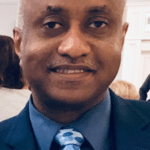 Dr Magid Abubakar is a Consultant Obstetrician and Gynaecologist and Ambulatory Gynaecology at Wexford General Hospital, Ireland and is Chair of the Sudanese Medical Specialisation Board Faculty in Ireland. He is a graduate of university of Gazira and Fellow of the Royal college of Obstetrician and Gynaecologist, UK and the Royal College of physician of Ireland.
Dr Magid Abubakar is a Consultant Obstetrician and Gynaecologist and Ambulatory Gynaecology at Wexford General Hospital, Ireland and is Chair of the Sudanese Medical Specialisation Board Faculty in Ireland. He is a graduate of university of Gazira and Fellow of the Royal college of Obstetrician and Gynaecologist, UK and the Royal College of physician of Ireland.
Dr Magid completed his Obstetrics and Gynaecology training in Ireland and joined the faculty of medicine at university of Khartoum in 2005 as an assistant professor and a Consultant Obstetrician and gynaecologist at Soba university hospital and subsequently as an associate professor and deputy general manager and director of Soba training and examination centre.
Dr Abda Hakim, Director of the General Department for Planning and Policies at the Federal Ministry of Health of Sudan
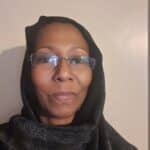 Dr. Abda Hakim is a Sudanese Medical Doctor, graduated from the University of Khartoum in 1995 & practiced clinical medicine for some time inside Sudan and abroad. She had Msc in Public and Tropical Health from the University of Health Sciences & Technology/ Sudan 2006. Then started to work for the FMoH in Sudan, in the General Directorate of the PHC/ the Directorate of Reproductive Health.
Dr. Abda Hakim is a Sudanese Medical Doctor, graduated from the University of Khartoum in 1995 & practiced clinical medicine for some time inside Sudan and abroad. She had Msc in Public and Tropical Health from the University of Health Sciences & Technology/ Sudan 2006. Then started to work for the FMoH in Sudan, in the General Directorate of the PHC/ the Directorate of Reproductive Health.
She had another Master in public health from the Open University of Malaysia, in 2012. She worked in the Public Health Institute (PHI) which is one of the training institutes affiliated to the FMoH, as a coordinator for the leadership training programme.
From August 2013-2020, she was the director of health policy directorate, within the general directorate of Planning & Policy in the FMoH. From 2021 up to date she is holding the post of the DG general directorate of planning & policy. While she was holding these positions, she guided the processes of development, monitoring and evaluation of more than twenty national health policies and strategic plans for the ministry of health. The most recent one is the National Health Recovery and Reform policy & Strategic plan 2021-2024.
Also, she was leading and supervising the capacity building of the FMoH & States’ health cadres in the areas of planning, policy, monitoring and evaluation, leadership and health system strengthening. Besides she led many policy dialogues at the state level which helped putting many complicated health issues in the agendas of the governors and decision makers at the States’ level. Furthermore, she is leading and supervising the capacity building programme for the localities’ health cadres in all the states; this programme started two years before the war and still going on.
Moderator
Dr Nuha Ibrahim, Academic and Researcher in Global Health
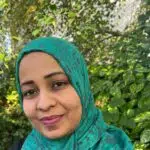 Dr. Nuha Ibrahim is a global health/public health academic and researcher. Nuha did her bachelor’s degree in Science from the University of Khartoum, Sudan. Then she did her master’s and Ph.D. in Global Health from Trinity College Dublin, The University of Dublin. Her research interests include health system strengthening, human resources for health, maternal and child health, and mental health.
Dr. Nuha Ibrahim is a global health/public health academic and researcher. Nuha did her bachelor’s degree in Science from the University of Khartoum, Sudan. Then she did her master’s and Ph.D. in Global Health from Trinity College Dublin, The University of Dublin. Her research interests include health system strengthening, human resources for health, maternal and child health, and mental health.
REGISTER HERE
CATEGORIES
- Restore Humanity Campaign
- Equity in Action Blog
- Training Programmes
- Sponsorship
- Vaccine Equity
- Get Global – Global Health Talks
- Student Outreach Team
- Get Global Young Professionals Talk Global Health
- Global Health Matters – Live Event Series
- Global Health Matters – IGHN Live Event Series
- An initiative of Irish Global Health Network
- ESTHER Ireland and ESTHER Alliance for Global Health Partnerships
- Global Health Matters – Webinar Series
- ESTHER
- IGHN Conferences
- Global Health Conference 2020
- Women in Global Health – Ireland Chapter
- ESTHER Partnerships
- Weekly Webinar Series
- 4th Global Forum on HRH
- Access to Medicines
- Archive Page Weekly COVID Webinars
- Clean Cooking 2019
- Climate Change and Health Conference 2017
- Conference Abstracts
- Conference Materials
- Covid FAQ
- COVID Funding Opportunities
- COVID-19
- COVID-19: Gender Resources
- Dashboard and online resources
- Education
- ESTHER Alliance
- Events
- Events & News
- Funding covid
- Global Health Exchange 2018
- Global Health Exchange 2019
- Global Health symposium 2019
- Health Workforce/HRH
- Homepage Featured
- Homepage recent posts
- IFGH 2011-2012 Conference and Events
- IFGH 2014 Conference
- IFGH Multimedia
- Irish AIDS Day 2017
- Irish News and Feeds
- Key Correspondent Articles
- Key Correspondent News
- Maternal Health
- Multimedia
- News
- News & Events
- Newsletter
- Opportunity
- Our LMIC's Resources for COVID19
- Partner Country News and Feeds
- Past Events
- Policy
- Presentations
- Recurring events
- Reports & Publications
- Research
- Resources
- Student Outreach Group
- Students Corner
- TEDTalks
- TRAINING COURSES FOR HEALTH CARE PROFESSIONALS
- Uncategorized
- Upcoming Events
RECENT POSTS

Impact testimonies- Lombani

Impact Testimony – Shadrick

Power, Inequality, Decolonisation – and Living My Recovery By Bronwyn April

Global Health Without Borders: Reflections on the Power of Diverse Voices

IGHNxEU – Empowering Women for a Healthier Europe

